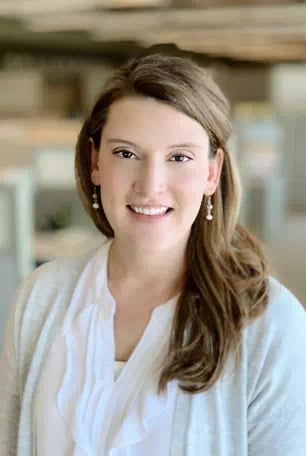Public Health Emergency Resource Update + Critical Access Hospitals

On January 30, 2023, the Biden-Harris Administration announced its intent to end the national emergency and Public Health Emergency (PHE) declarations related to the COVID-19 pandemic on May 11, 2023. Various flexibilities and waivers enabled by the COVID-19 emergency declarations will expire at the end of the PHE.
Recent legislation has impacted some of the PHE emergency declarations. On December 29, 2022, H.R. 2716, the Consolidated Appropriations Act (CAA) for Fiscal Year 2023, was signed into law. This legislation included an extension of the major telehealth waivers and the Acute Hospital Care at Home (AHCaH) individual waivers that were initiated during the PHE.
CMS has a provider-specific listing of fact sheets for information about COVID-19 Public Health Emergency (PHE) waivers and flexibilities. These fact sheets include information about which waivers and flexibilities have already been terminated, made permanent, or will end at the end of the PHE. The hospital and CAH-specific fact sheet was published on 2/1/2023.
CAH/hospital highlights:
CMS Hospitals Without Walls (Temporary Expansion Sites)
This initiative allowed hospitals to provide services in other hospitals and sites that otherwise would not have been considered part of a healthcare facility or could set up temporary expansion sites to help address the urgent need to increase capacity to care for patients. When the PHE ends, hospitals and CAHs will be required to provide services to patients within their hospital departments, following the conditions of participation. In addition, the waiver to allow off-site patient screening will terminate at the end of the PHE. Please note that the CAA did extend the individual waiver only (not a blanket waiver) of Acute Hospital Care at Home Program through 2024.
Critical Access Hospital Bed Count and Length of Stay
CMS has been waiving the Medicare requirements that Critical Access Hospitals (CAHs) limit the number of beds to 25 and that the length of stay be limited to 96 hours under the Medicare conditions of participation regarding the number of beds and length of stay at 42 CFR §485.620. This waiver will end after the PHE ends.
CAH Personnel Qualifications
CMS has been waiving the minimum personnel qualifications for clinical nurse specialists, nurse practitioners, and physician assistants. CMS will end this waiver at the conclusion of the PHE.
CAH Staff Licensure
CMS has had a waiver in place to defer all licensure, certification, and registration requirements for CAH staff to the state, which adds flexibility where federal requirements are more stringent. CMS will end this waiver at the conclusion of the PHE.
Responsibilities of Physicians in CAHs
CMS has been waiving the requirement for CAHs that a doctor of medicine or osteopathy be physically present to provide medical direction, consultation, and supervision for the services provided in the CAH. CMS will end this waiver at the conclusion of the PHE.
Medical staff requirements
CMS has been waiving Medical Staff requirements to allow physicians whose privileges would have expired to continue practicing at the hospital and new physicians to be able to practice in the hospital before full medical staff/governing body review and approval. CMS will end this waiver at the conclusion of the PHE.
Physician services
CMS has been waiving the requirement that Medicare patients be under the care of a physician. CMS will end this waiver at the conclusion of the PHE.
Anesthesia services
CMS has been waiving the requirements that CRNAs are under the supervision of a physician. CMS will end this waiver at the conclusion of the PHE.
Expanded Ability for Hospitals to Offer Long-term Care Services (Swing Beds) for Patients Who do not Require Acute Care but do Meet the Skilled Nursing Facility (SNF) Level of Care Criteria as Set Forth at 42 CFR 409.31
CMS has been allowing hospitals to establish SNF swing beds, payable under the SNF Prospective Payment System (PPS), to provide additional options for hospitals with patients who no longer require acute care but are unable to find placement in an SNF. This waiver will end after the PHE ends.
Telehealth
The Consolidated Appropriations Act of 2023 extended many of the telehealth flexibilities authorized during the COVID-10 PHE through December 31, 2024. However, during the PHE, practitioners were allowed to bill telehealth services provided in patients’ homes as if they were provided in the hospital outpatient department. This flexibility to bill the telehealth service provided in the patient’s home as if it were provided at the hospital will end with the end of the PHE.
“Stark Law” Waivers
CMS issued blanket waivers of certain provisions of the physician self-referral law (“Stark Law”) for financial relationships and referrals related to the COVID-19 emergency. For example, the waiver allowed hospitals to provide services or pay for equipment above or below fair market value. When the PHE ends, the waivers will terminate, and physicians and entities must immediately comply with all provisions of the Stark Law.
Cost Reporting Deadlines
MACs have the authority to grant up to a 60-day extension of the due date for filing a cost report if the provider’s operations are significantly adversely affected due to extraordinary circumstances over which the provider has no control, such as the COVID-19 PHE. Providers that continue to experience impacts may still submit extension requests to their MAC.
Provider Enrollment
- During the PHE, CMS established toll-free hotlines for physicians, non-physician practitioners, and Part A certified providers and suppliers who have established isolation facilities to enroll and receive temporary Medicare billing privileges. When the PHE ends, the hotlines will be shut down.
- Expedited Enrollment – When the PHE ends, CMS will resume normal application processing times.
- Opt-Out Enrollment – When the PHE ends, opted-out practitioners will not be able to cancel their opt-out statuses earlier than the applicable regulation at 42 CFR 405.445 allows for.
- Reporting Home Address – When the PHE ends, practitioners will be required to resume reporting their home address on the Medicare enrollment.
State Licensure
During the PHE, CMS allowed licensed physicians and other practitioners to bill Medicare for services provided outside of their state of enrollment. CMS has determined that when the PHE ends, CMS regulations will continue to allow for a total deferral to state law. Thus, there is no CMS-based requirement that a provider must be licensed in its state of enrollment.
Requirement for Hospitals and CAHs to Report Data for COVID-19 and Acute Respiratory Illness
Currently, hospitals and CAHs are required to report information in accordance with a frequency and standardized format, as specified by the Secretary during the PHE for COVID-19. Beginning after the PHE ends and continuing until April 30, 2024, unless the Secretary determines an earlier end date, hospitals and CAHs are required to report data for COVID-19 and seasonal influenza in a standardized format and frequency as specified by the Secretary.
COVID-19 Vaccines
CMS will continue to pay approximately $40 per dose for administering COVID-19 vaccines in outpatient settings for Medicare beneficiaries through the end of the calendar year that the PHE ends (December 31, 2023). Effective January 1 of the year following the year that the PHE ends (January 1, 2024), CMS will set the payment rate for administering COVID-19 vaccines to align with the payment rate for administering other Part B preventive vaccines.
COVID-19 Monoclonal Antibodies
During the PHE, CMS covered and paid for monoclonal antibody therapies consistent with coverage for COVID-19 vaccines, with no beneficiary cost sharing and no deductible when administered by a provider (as long as the product was not received for free). Effective January 1 of the year following the year that the PHE ends (January 1, 2024), CMS will pay for monoclonal antibodies as they pay for biological products under Section 1847A of the Social Security Act, with the payments subject to applicable deductible and coinsurance.
COVID-19 Diagnostic Testing
During the PHE, hospital outpatient departments were paid for symptom assessment and specimen collection for COVID-19 using a new HCPCS code C9803. The national rate was roughly $23 for HCPCS code C9803 when not billed with a separately payable hospital outpatient service. After the PHE, payment for specimen collection for COVID testing will always be packaged into the payment for COVID testing and no longer paid separately.
There are many updates to additional hospital and CAH waivers /flexibilities that will be impacted by the end of the PHE included in the provider-specific manual. We recommend reviewing the list to see how your hospital operations may be impacted when the PHE ends on May 11, 2023. Please contact us if you have any questions or learn more about our healthcare accounting and consulting services.
Contributor: Ashley Bredthauer

- Achiever, Learner, Strategic, Context, Individualization
Julianne Kipple
Julianne Kipple, Healthcare Shareholder, began her career in 2008. Over the years, she has built a strong expertise in healthcare accounting and consulting while driving the expansion of Lutz’s services for rural and critical access hospitals. She is actively involved in the healthcare department’s operations, focusing on strategic growth and team development.
Leveraging her experience in healthcare finance, Julianne focuses on providing outsourced CFO services to healthcare facilities. She provides Medicare and Medicaid cost reporting, software conversion assistance, and comprehensive financial management solutions. Julianne values ensuring the sustainability of rural healthcare facilities, understanding their vital role in their communities.
At Lutz, Julianne demonstrates what it means to serve beyond expectations by helping healthcare organizations facing complex challenges. Her genuine care for rural healthcare facilities shows in everything she does - from anticipating their needs to finding creative solutions that ensure their success. Through her thoughtful mentorship of her team, she's helped establish Lutz as a trusted partner in the healthcare sector.
Julianne lives in Bennington, NE, with her husband and four children. Outside the office, she can be found attending her kids' sporting events, running, and cooking on the weekends.
Recent News & Insights
Electing Out of the Complex Variable Interest Entity (VIE) Guidance
What Your Business Needs To Know About Sales Tax
What are the Pros and Cons of Filing a Business Tax Extension?
How to Increase the Value of Your Business



%20(1)-Jan-02-2024-09-05-00-8712-PM.jpg?width=300&height=175&name=Untitled%20design%20(2)%20(1)-Jan-02-2024-09-05-00-8712-PM.jpg)
%20(1)-Mar-08-2024-09-22-41-1011-PM.jpg?width=300&height=175&name=Untitled%20design%20(5)%20(1)-Mar-08-2024-09-22-41-1011-PM.jpg)
%20(1)-Mar-08-2024-09-27-14-7268-PM.jpg?width=300&height=175&name=Untitled%20design%20(6)%20(1)-Mar-08-2024-09-27-14-7268-PM.jpg)

%20(1)-Mar-08-2024-09-11-30-0067-PM.jpg?width=300&height=175&name=Untitled%20design%20(3)%20(1)-Mar-08-2024-09-11-30-0067-PM.jpg)
%20(1)-Mar-08-2024-09-18-53-4361-PM.jpg?width=300&height=175&name=Untitled%20design%20(4)%20(1)-Mar-08-2024-09-18-53-4361-PM.jpg)
-Mar-08-2024-09-03-21-1119-PM.jpg?width=300&height=175&name=Untitled%20design%20(1)-Mar-08-2024-09-03-21-1119-PM.jpg)
-2.png?width=264&height=160&name=Website%20Featured%20Content%20Images%20(1)-2.png)
-Mar-08-2024-08-50-35-9527-PM.png?width=300&height=175&name=Untitled%20design%20(1)-Mar-08-2024-08-50-35-9527-PM.png)


.jpg)




